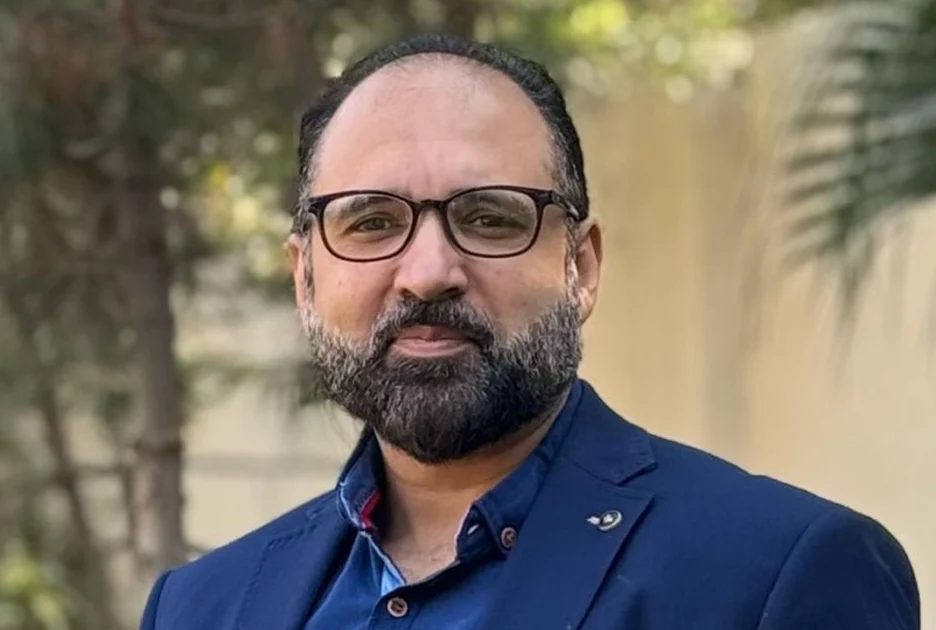- Anusha Zahid
- Mar 24, 2025

Disconnecting the Future!!
In the past few weeks, Pakistanis have been left frustrated and confused by a persistent internet slowdown that seems to have no clear explanation. The government, staying silent, has done little to clarify whether this is a mere technical issue or something more sinister, like the testing of a larger surveillance system or an attempt to control the flow of information. What’s becoming increasingly clear, though, is that this isn’t just about slow internet speeds, it’s a deliberate move that could have significant consequences for the country’s future.
At the center of this crisis is Pakistan’s youth, making up 65% of the population, who are already struggling to find opportunities in a country that hasn’t done enough to support them. Now, even the few opportunities they do have are being threatened by this internet crackdown. A report from Goldman Sachs suggests that Pakistan could become the world’s sixth-largest economy by 2075 if it fully taps into its youth’s potential. But how can we expect to reach that goal when the very tools that enable innovation, learning, and growth are being taken away from them?
After much delay, IT Minister Shaza Fatima Khawaja tried to calm the waters by downplaying fears of censorship. She claims the government is simply upgrading its web management systems to better protect against cyberattacks. But the reality on the ground tells a different story. The Wireless and Internet Service Providers Association of Pakistan has confirmed a 30-40% drop in internet speeds, a move that feels more like a calculated attempt to silence dissent than a technical upgrade. Unlike countries like Russia, where firewalls are used to defend against foreign threats, here in Pakistan, it seems the firewall is being used against our own people.
While Pakistan’s economy is bleeding $300 million from internet disruptions, Indian startups are thriving, raising $395 million in just one week, a 350% increase. India’s startup ecosystem secured $1.71 billion in June 2024 alone, marking a 148% year-on-year increase, with over $11 billion raised in 2023.
The economic impact is already rearing its ugly head. The Pakistan Business Council has noted that many businesses are now looking towards Dubai as a safer place to operate. The country’s internet firewall could cost the economy a staggering $300 million, and the departure of IT companies now seems all but inevitable. Big names like Shell, Telenor, and several major oil and gas firms are already making their exit plans, while Pakistan’s $4 billion IT industry is teetering on the edge. Unlike Russia, North Korea, or Iran, which provided alternative platforms when they restricted internet access, Pakistan has no such contingency plan. Years of hard work to establish our presence in the global digital market could be undone in a matter of months if the government doesn’t change course.
History shows that this kind of strategy doesn’t even work. During Zia-ul-Haq’s rule, when there was no internet, criticism and opposition still found a way to thrive. Information doesn’t need the internet to spread; it will always find a way. Meanwhile, while Pakistan’s economy is bleeding $300 million from internet disruptions, Indian startups are thriving, raising $395 million in just one week, a 350% increase. India’s startup ecosystem secured $1.71 billion in June 2024 alone, marking a 148% year-on-year increase, with over $11 billion raised in 2023. While our neighbour thrives, we’re putting the brakes on our progress.
This isn’t just a hypothetical problem. In the last six months, over 3,900 Pakistani firms have joined the Dubai Chamber of Commerce, driven away by high operational costs, suffocating taxes, political instability, soaring electricity prices, and deteriorating law and order. Yet, the government seems blissfully unaware of the brain drain that’s hollowing out our economy. The time for action is now. If the government doesn’t recognise the importance of creating a favourable environment for freelancers, business owners, and investors, the cost won’t just be measured in dollars but in the lost potential of an entire generation—a loss that Pakistan simply cannot afford.
This isn’t just a temporary setback; it’s a symptom of much deeper problems in the way our country is being run. The youth, who should be the driving force behind Pakistan’s future, are being systematically sidelined. The government’s failure to communicate clearly or present a coherent strategy during this internet crackdown reflects a broader pattern of neglect and mismanagement. Instead of using technology to uplift young entrepreneurs, freelancers, and IT professionals, the government is effectively shutting them down. The lack of transparency and the uncertainty surrounding this internet slowdown are not just eroding trust within the country but also among international investors. Trust is a fragile thing, and once it’s lost, it’s incredibly difficult to win back. If this continues, it could have long-term consequences for Pakistan’s standing in the global digital economy.
The broader economic picture is already shifting, with effects that could last for years. The mass exodus of companies and the relocation of businesses to more stable environments like Dubai isn’t just about escaping current internet issues, it’s a direct response to a hostile business environment in Pakistan. The government’s inability to foster and maintain a business-friendly climate is jeopardizing the very foundation of our economic growth. The opportunities we’re losing, particularly in tech-driven sectors, will have a ripple effect, stifling innovation, reducing job creation, and ultimately leading to a decline in our global competitiveness. If the government doesn’t take immediate steps to address these issues, Pakistan risks falling further behind, turning what could be a powerhouse of youth-driven growth into a cautionary tale of missed opportunities and squandered potential.






